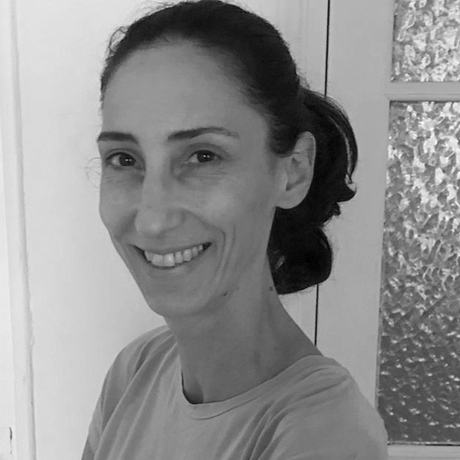The black hole of men’s domination of women
- Books
- Culture Folder
- Apr 21
- 4 mins
Najat El Hachmi, who went down in history for winning the Ramon Llull Prize with El patriarca [The Patriarch] in 2008. It was the first time that a Moroccan writer had received a prize coveted for its monetary award. However, behind the flashes of success, the reality is more bitter. This is how El Hachmi captures it, who tells us, once again, what it means to win an award that later is used by journalists to question her about her Muslim roots and exalting her as a – false – model of integration.
Her status as a migrant has occupied much of the literature of Najat El Hachmi, who went down in history for winning the Ramon Llull Prize with El patriarca [The Patriarch] in 2008. It was the first time that a Moroccan writer had received a prize coveted for its monetary award. That the prize was named after “Ramon Llull” – a philosopher who stood out for his desire to build bridges with Arab culture – afforded an additional dimension to this surprising and juicy literary phenomenon, socially speaking. It is clear that those from “here” – as El Hachmi puts it – saw it as a milestone, a test of the image of “host country” that the institutions strive to forge. However, behind the flashes of success, the reality is more bitter. This is how El Hachmi captures it, who tells us, once again, what it means to win an award that later is used by journalists to question her about her Muslim roots and exalting her as a – false – model of integration.
While in El patriarca the Catalan writer introduced us to the oppressive world of women in Islam through the unidirectional figure of the father, in La hija extranjera [The Foreign Daughter] (2015) and in Madre de miel y leche [Mother of Honey and Milk] (2018), the ambivalent and complex figure of the mother takes centre stage. And pulling on this female thread, now comes El lunes nos querrán [On Monday They Will Love Us], a novel with autobiographical hues written in Spanish, winner of the Nadal Award. Likewise, the author herself was responsible for the Catalan version, which, in the edition published by Edicions 62, is not even presented as a translation. The quote at the head of the book reads: “To the brave who went off the right path to be free. Even if it hurt them.” In fact, the novel is a letter to a “you”, the female friend who encourages the main character to leave a claustrophobic neighbourhood that tries, by all means, to restrict her life as a woman.
 Dilluns ens estimaran (On Monday They Will Love Us), by Najat El Hachmi
Dilluns ens estimaran (On Monday They Will Love Us), by Najat El HachmiWith a well-constructed game between the two female friends, in which the other seems to be the strong person, El lunes nos querrán immerses us in topics such as submission, guilt, motherhood, racism as well as the social pressure that is exerted on women to be perfect and worthy of love. And she does so with a story that depicts, through the protagonist’s gaze, a seventeen-year-old girl different from the rest because she likes to study, a girl who aspires to have a different fate to the one that, on account of her environment, would correspond to her. On the other hand, the yearning for freedom in the case of the female friend – and also that of a third female friend – is fostered by more modern families. The point is that all three, each in their own context, pay a price to deviate from the path that society has mapped out for them.
El Hachmi describes, with a prose laden with sarcasm, this peripheral neighbourhood of Barcelona that does not establish on the map, the suffocating atmosphere that is felt with characters such as Parabólica, the nosy and envious sharp-tongued neighbour. It also portrays the atmosphere of a factory, in which the protagonist is hired to carry out tough cleaning tasks on the night shift – “everything would have been easier if they had called me Anna” –, or the university’s banal atmosphere, a bubble in which much is theorised and that is far from having its feet on the ground.
El Hachmi certainly makes us reflect on otherness and miscegenation, but, above all, on the domination exercised over women regardless of the culture to which they belong.
It contains novelettish aspects, such as the shift to the style of Not Without My Daughter of the male characters and the drift towards a dead end of the strong female friend. Because, once again, sexuality is palpable in the book by the author of La cazadora de cuerpos [The Body Hunter] (2011), an examination of female desire and the eagerness of Muslim society to control it by injecting the poison of guilt. At this point, a parallel can be established with the French writer of Moroccan origin Leïla Slimani, who speaks for the first time in El país de los otros [The Country of Others] of her family’s origins, and brings forth a character, Selma, who is trapped in a curvaceous body, for which she will be punished. In both cases it is a literature that certainly makes us reflect on otherness and miscegenation, but, above all, on the domination exercised over women regardless of the culture to which they belong.
Dilluns ens estimaran
Najat El Hachmi
Edicions 62
Barcelona, 2020
The newsletter
Subscribe to our newsletter to keep up to date with Barcelona Metròpolis' new developments




